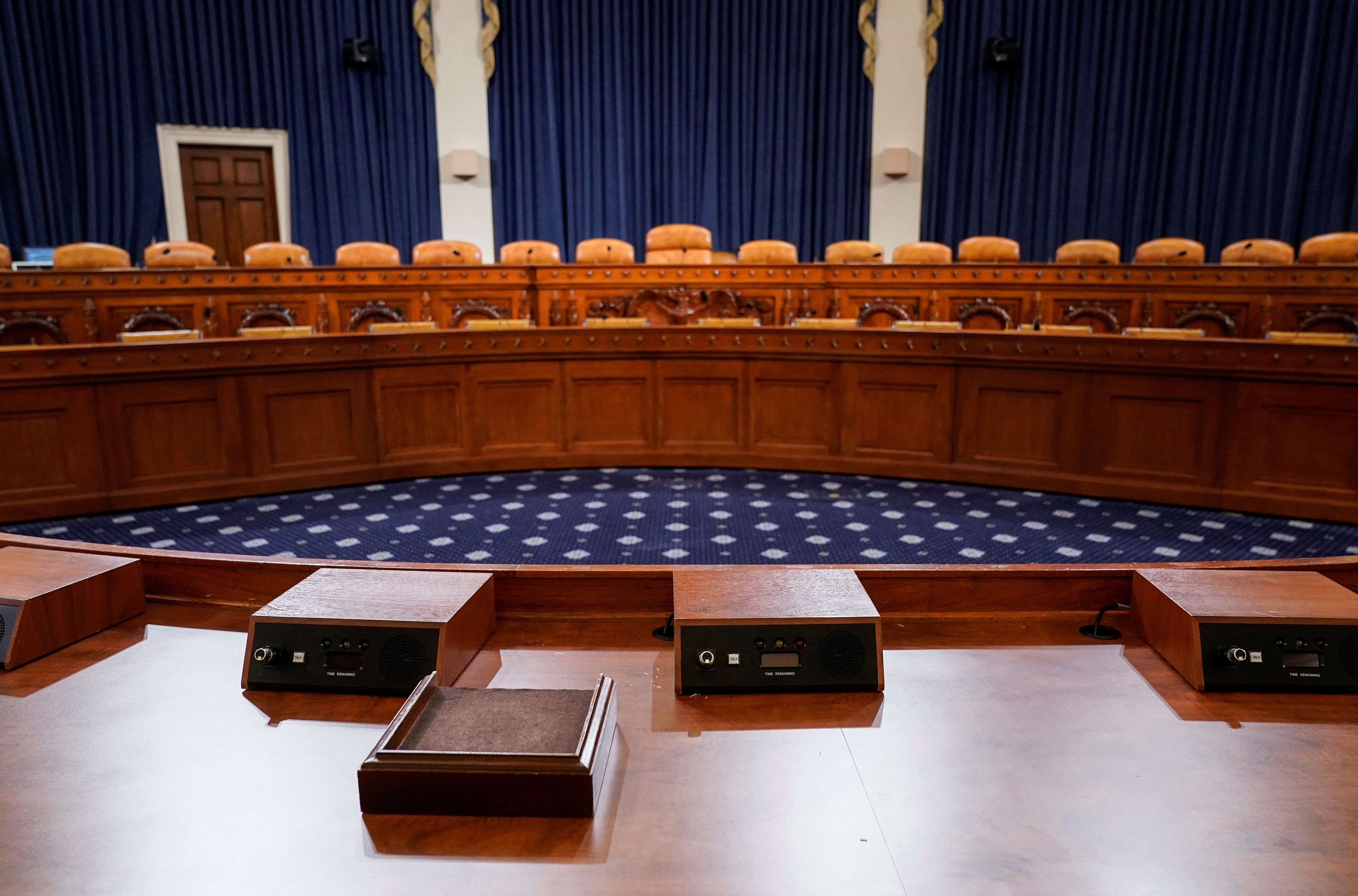The Trump Impeachment Inquiry and U.S.-Ukraine Relations

Ukrainian Thread of the Impeachment Inquiry
In response to a whistleblower’s complaint regarding a telephone conversation between Trump and Zelensky of 25 July, Speaker of the House of Representatives Nancy Pelosi on 24 September announced an inquiry into the possible impeachment of the president. In the conversation, the president is alleged to have abused the power of his office by promising to unblock $391 million in military and economic assistance to Ukraine in exchange for launching an anti-corruption investigation into Biden’s son, Hunter. In 2014–2019, Hunter Biden sat on the supervisory board of the Ukrainian gas company Burisma. According to Trump, in 2016, Joe Biden, the former vice president of the U.S. and a current Democratic candidate for president, supposedly urged Ukrainian President Petro Poroshenko to use his constitutional powers to remove from office Viktor Shokin, the Ukranian prosecutor general, and to close an anti-corruption investigation into Burisma. Democrats, including Joe Biden himself, argue that in the talks with Poroshenko, Shokin’s name was raised because of the prosecutor general’s passivity in corruption cases, including no action on Burisma. Other leaders of European countries, EU institutions, the International Monetary Fund and the World Bank had also expressed concerns that Shokin was corrupt. Ultimately, the Verkhovna Rada of Ukraine dismissed Shokin in March 2016.
Although the complaint concerns the president’s conversation, the context reveals actions by the American administration towards Ukraine before Zelensky took office. In the conversation with Zelensky, Trump referred not only to the Bidens but also to a debunked conspiracy theory alleging that Ukrainian politicians cooperated with the Democratic National Committee (DNC) and the American embassy in Kyiv to interfere in the U.S. presidential election in 2016. The Democrats’ suspicions of Trump’s intentions stem from the U.S. withholding $391 million in military and economic assistance for Ukraine a few days before the conversation with Zelensky. Initially, the delay was seen as an attempt to block the sale of JSC Motor Sich, a Ukraine-based aircraft engine manufacturer, to Chinese investors, especially because John Bolton, Trump’s national security advisor at the time, took up the issue during his visit to Ukraine in August. Finally, after pressure from Congress, which had approved the aid, it was unblocked. U.S. media reports then began to suggest that it had been stopped because of pressure on Ukraine regarding the Biden investigation. This was confirmed by the whistleblower complaint and testimony by diplomats and administration representatives who have appeared before Congress.
Trump claims that the block on aid was intended to draw attention to a lack of similar declarations of financial support from European countries and corruption in Ukraine. Contrary to the president’s claims, though, EU assistance to Ukraine in 2014–2018 amounted to $3.5 billion while the European Bank for Reconstruction and Development in the form of direct investments and loans provided Ukraine with an additional $3.8 billion. In the years 2014–2017, Poland was the fourth-largest donor of military assistance to Ukraine, after the U.S., Canada, and NATO. To strengthen his defence, the president’s staff published a “transcript” based on officials’ recollections of the July conversation with Zelensky.
Trump Administration Policy towards Ukraine
The Russian aggression in 2014 changed the significance of Ukraine in American foreign policy. The U.S., like most countries, does not recognise the annexation of Crimea and demands the full implementation of the Minsk-2 agreement. In response to the Russian actions, the U.S. introduced sanctions against Russia, especially targeting selected citizens. However, the decisions to increase economic and military aid to Ukraine were not made until 2016, at the end of Barack Obama’s presidency. Since the beginning of Trump’s term, the U.S. has granted $846 million in economic assistance to and $850 million in military assistance to Ukraine. In the FY2020 budget, Congress directed funds similar to those in previous budgets (also during Trump’s term)—$328 million and $250 million, respectively. In addition, Congress allocated $30 million each in 2017 and 2018 to support Ukraine’s energy security. In total, in the years 2014–2018, the U.S. transferred more than $2 billion to Ukraine and granted three loans worth $1 billion each (the last one was transferred in 2016).
The U.S. also adopted the Countering America’s Adversaries Through Sanctions Act in 2017, which includes, among others, opposition to the Russian Nord Stream 2 pipeline project as threatening the energy security of Ukraine (and EU countries) and sanctioning enterprises and individuals involved in this project. A tripartite memorandum between the U.S, Poland, and Ukraine regarding LNG trade was signed in August to strengthen Ukraine’s energy security.
U.S. Special Envoy Kurt Volker played a key role in U.S. policy towards Ukraine. In talks with Russia, he supported Ukraine’s position regarding security, directly negotiating with Vladislav Surkov, an adviser to Russian President Vladimir Putin responsible for the Donbas issue (Minsk-2). Volker sought international support for the peace process, including the deployment of UN forces (also on the border with Russia) and clearly indicated Russia’s responsibility for the aggression against Ukraine. In connection with the launch of the impeachment inquiry in the House of Representatives, Volker resigned, which should allow him to cooperate freely with congressional committees.
In October, the House Intelligence Committee held a hearing with William “Bill” Taylor, the current chargé d’affaires ad interim for Ukraine. In his testimony, he revealed the dual approach in U.S. policy towards Ukraine, pointing to divergent, informal efforts controlled by Rudy Giuliani, Trump’s personal lawyer. Energy Secretary Rick Perry, U.S. Ambassador to the EU Gordon Sondland, and Volker were also involved. Perry plans to leave the administration at the end of this year. The purpose of their activities appears to have been to force President Zelensky and his advisers to initiate investigations into the Bidens and the DNC claim, linking them to bilateral relations at all levels, from a White House visit to providing military aid.
To more effectively implement Trump and Giuliani’s goals, in May, the State Department announced that then U.S. Ambassador to Ukraine Marie Yovanovitch, a professional diplomat appointed during the Obama presidency, was to be shortened by two months. This decision was revealed to have been made because of Giuliani’s personal intervention. The Trump administration claims that the shortened term of the ambassador was dictated by the need to improve contacts with the new president of Ukraine, but no successor has yet been announced. In June, at the request of Secretary of State Mike Pompeo, Taylor took the position of chargé d’affaires ad interim.
Conclusions and Perspectives
The subordination of bilateral relations to a political dispute in the U.S. adversely affects Ukraine’s ability to achieve its goals in its relations with the U.S. Ukraine will not have an impact on the progress of the impeachment inquiry and, at the same time, the investigation will affect the perception and content of Ukrainian-American relations. Also, the lack of appropriate diplomatic outlets on the U.S. side—no ambassador in Kyiv, Volker’s resignation, and the possible resignation of Taylor in connection with the congressional investigations—may result in less involvement of the Trump administration in maintaining the current consensus with key partners from the EU, NATO, and outside Europe regarding the conflict in the Donbas. This is particularly important because of the increased pressure from Germany and France (within the Normandy Format) on Ukraine to revise its position on Russia and the Donbas. Until now, the U.S has prevented the Normandy Format states from imposing concessions on Ukraine and restrained the Ukrainian authorities from a settlement in the Normandy Format negotiations. At the same time, the ongoing impeachment investigations make it impossible to find a successor to Volker and approval by the Senate of any candidate nominated as ambassador to Ukraine will be difficult. The administration also is unlikely to undertake new initiatives towards Ukraine because of uncertainty as to the president’s true intentions. Nevertheless, U.S. policy towards Ukraine is in many respects based on Congress’ decisions. Therefore, essential elements, such as military assistance, strengthening energy security, and the sanctions against Russia, will be maintained.


